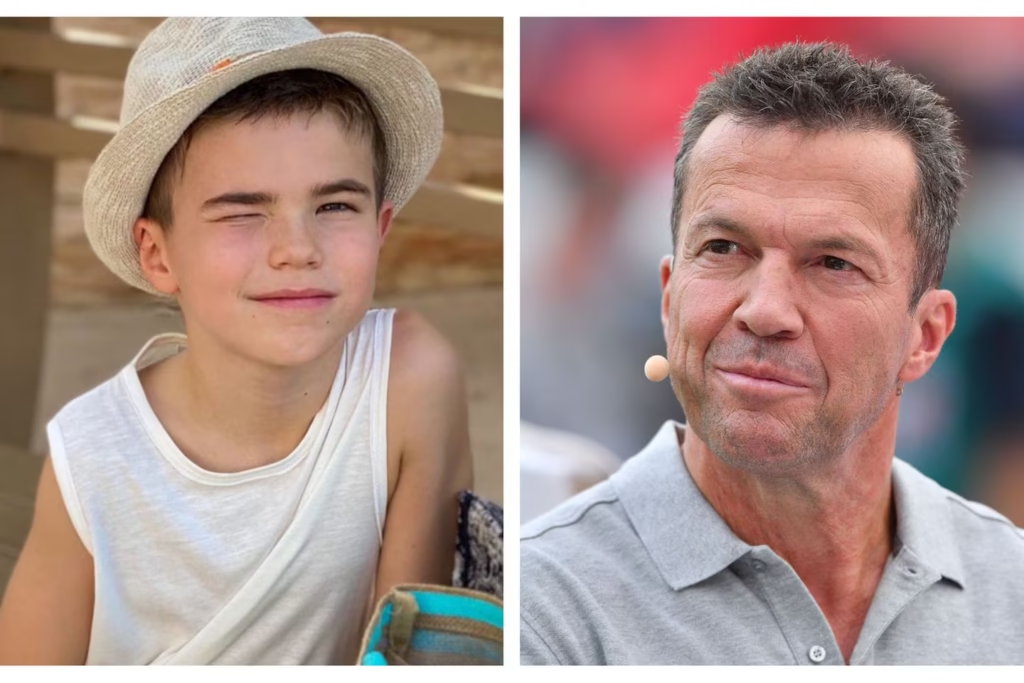
The Man Behind the Legend
Lothar Matthäus is a name that evokes respect and nostalgia in the hearts of football fans worldwide. From lifting the 1990 FIFA World Cup to captaining both Bayern Munich and the German national team, his achievements are etched in football history. Yet, beyond the goals and glory lies a personal story—a story that took a sorrowful turn with the devastating news: Lothar Matthäus’ Sohn verstorben (Lothar Matthäus’ son has died).
The loss of a child is one of the deepest sorrows a parent can endure. And while the football legend has faced professional highs and lows, this moment has brought an entirely different weight into his life—one filled with grief, silence, and the daunting path of mourning.
Who Was His Son?
Although Lothar Matthäus has led a life in the public eye, he has always kept his children away from the spotlight. He is a father of five, with children from multiple relationships. However, very little is publicly known about the identity and personal life of the son who has tragically passed away.
Sources close to the family report that Matthäus shared a particularly close bond with this son. Unlike his father, the young man reportedly lived a life far from the glare of media cameras—quiet, grounded, and private. The precise cause of death has not been publicly disclosed, out of respect for the family’s wishes.
In such cases, maintaining boundaries is not just about privacy but about human dignity—a value that Matthäus himself has always emphasized when it comes to his family.
A Wave of Condolences from Around the World
The moment the words “Lothar Matthäus’ Sohn verstorben“ made their way onto news tickers and social media platforms, there was an immediate outpouring of sympathy from fans and peers alike. Bayern Munich, Borussia Mönchengladbach, and even Inter Milan, where Matthäus played during his prime, issued heartfelt statements offering condolences.
Former teammates like Jürgen Klinsmann and Andreas Brehme shared their support. Even rival figures such as Oliver Kahn and Lothar’s longtime critics set aside differences to send their thoughts and prayers.
The football community—often divided by competition—showed unity, reminding the world that personal loss transcends professional rivalries.
Managing Grief in the Public Eye
Being a public figure during a time of personal grief is not easy. The spotlight does not dim just because your heart is broken. For Matthäus, the burden is doubly hard: he must grieve as a father while the world watches every move.
Shortly after the news broke, Matthäus and his family issued a brief statement asking for privacy during this incredibly difficult time. They also thanked fans and friends for the support, stating that words of kindness were providing strength in this dark hour.
This appeal for discretion was largely honored by major news outlets, though, as is often the case, some tabloids and blogs speculated unnecessarily. Such behavior highlights the ongoing tension between media freedom and human empathy.
The Human Cost of Loss
Grieving the death of a child is a soul-wrenching experience that alters the course of a parent’s life. It brings about not just emotional pain, but physical and psychological tolls. Sleepless nights, chronic stress, and even symptoms of depression and anxiety are common in such cases.
For someone like Matthäus—who’s accustomed to leading and inspiring others—this may feel like the first time life has brought him to his knees.
In the world of elite sports, where toughness and resilience are prized, moments like these serve as a sobering reminder: athletes, legends, and icons are still human beings, vulnerable to the same heartbreak that affects us all.
Media Responsibility and Public Discourse
The tragedy also opens up an important discussion about how we, as consumers and sharers of information, respond to personal loss. The term “Lothar Matthäus’ Sohn verstorben” trended for hours across digital platforms. While much of the reaction was respectful, there were unfortunately pockets of speculation, rumor, and even criticism.
This points to a troubling aspect of modern media culture—the race for clicks often eclipses compassion. Thankfully, many responsible journalists maintained a delicate balance between reporting and respecting, proving that ethical storytelling is still possible in today’s media landscape.
Strength Through Community and Family
Throughout his career, Lothar Matthäus has displayed incredible fortitude. Whether it was bouncing back from injuries, facing public scrutiny over his personal life, or transitioning into punditry post-retirement—he’s always kept his composure.
This tragedy, however, is different. It’s not about a failed match or a lost championship. It’s about navigating an unfillable void. During this period, friends, family, and even rivals have come together to lift him up. Support has come from all corners, including fans who never met him but feel deeply connected through his decades of service to the game.
A Moment for Reflection
This heartbreaking news invites all of us to reflect—not just on life and death, but on how we treat people who are grieving. It urges fans to be more compassionate, media to be more sensitive, and society to remember that pain is universal, regardless of fame or fortune.
As the world moves on, the family will not forget. Time may ease the sharpness of their grief, but it won’t erase the absence. And that is okay.
Final Thoughts: Beyond the Headlines
The headline “Lothar Matthäus’ Sohn verstorben” is not just a piece of celebrity news—it’s a real human tragedy. And as we read, share, and comment, we must do so with care. Behind every name is a father, a son, a memory, and a moment lost in time.
In honoring that, we honor the very humanity that connects us all.
you may also read: thryvolence



